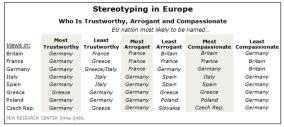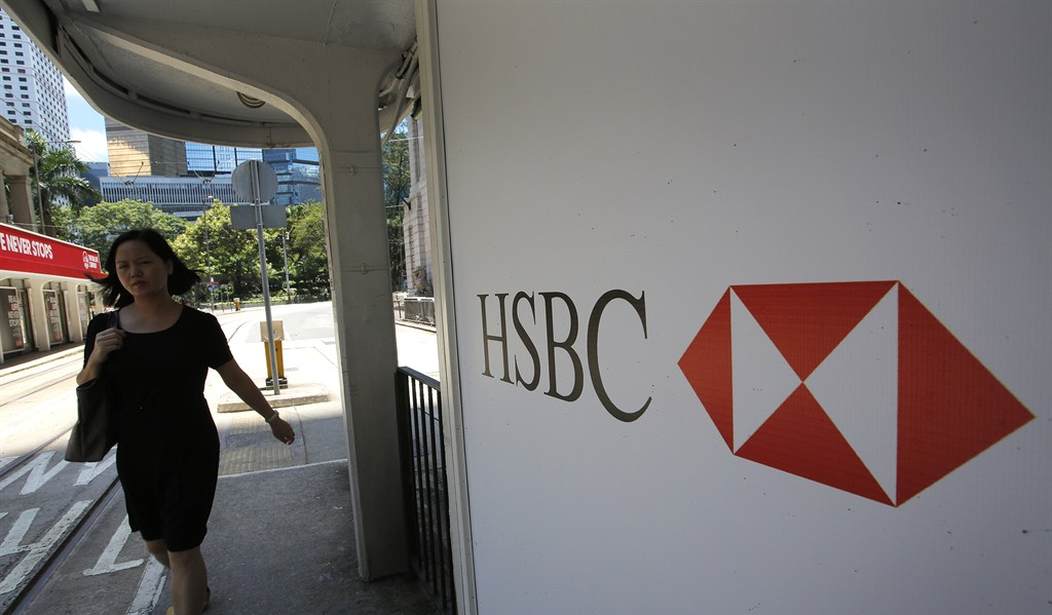People are getting increasingly agitated about being spied on by government.
The snoops at the National Security Agency have gotten the most attention, and those bureaucrats are in the challenging position of trying to justify massive invasions of our privacy when they can’t show any evidence that this voyeurism has stopped a single terrorist attack.
And let’s not forget that some politicians and bureaucrats want to track our driving habits with GPS devices. Their immediate goal is taxing us (gee, what a surprise), but does anyone doubt that the next step would be a database of our movements?
But the worst example of government spying may be the web of laws and regulations that require banks to monitor our bank accounts and to share millions of reports about our financial transactions with the Treasury Department’s Financial Crimes Enforcement Network.
Money laundering laws were adopted beginning about 30 years ago based on the theory that we could lower crime rates by making it more difficult for crooks to utilize the financial system.
 There’s nothing wrong with that approach, at least in theory. But these laws have become very expensive and intrusive, yet they’ve had no measurable impact on crime rates.
There’s nothing wrong with that approach, at least in theory. But these laws have become very expensive and intrusive, yet they’ve had no measurable impact on crime rates.
As you might expect, politicians and bureaucrats have decided to double down on failure and they’re making anti-money laundering laws more onerous, imposing ever-higher costs in hopes of having some sort of positive impact. This is bad for banks, bad for the poor, and bad for the economy.
And it’s encouraging banks to treat customers like crap. Check out this ridiculous example included in a BBC report.
Stephen Cotton went to his local HSBC branch this month to withdraw £7,000 from his instant access savings account to pay back a loan from his mother. A year before, he had withdrawn a larger sum in cash from HSBC without a problem. But this time it was different, as he told Money Box: “When we presented them with the withdrawal slip, they declined to give us the money because we could not provide them with a satisfactory explanation for what the money was for. They wanted a letter from the person involved.” Mr Cotton says the staff refused to tell him how much he could have: “So I wrote out a few slips. I said, ‘Can I have £5,000?’ They said no. I said, ‘Can I have £4,000?’ They said no. And then I wrote one out for £3,000 and they said, ‘OK, we’ll give you that.’ ” He asked if he could return later that day to withdraw another £3,000, but he was told he could not do the same thing twice in one day.
Recommended
Here’s another absurd story.
Peter from Wiltshire, who wanted his surname withheld, had a similar experience. He wanted to take out £10 000 cash from HSBC, some to pay to his sons and some to fund his long-haul travel plans. Peter phoned up the day before to give HSBC notice and everything seemed to be fine. The next day he got a call from his local branch asking him to pay his sons via a bank payment and to provide booking receipts for his holidays. Peter did not have any booking receipts to show.
And another.
Belinda Bell is another customer who was initially denied her cash, in her case to pay her builder. She told Money Box she had to provide the builder’s quote.
Why is the bank treating customers like dirt? Well, because they’re pressured to act that way thanks to anti-money laundering laws, which basically require them to act as if unusual transactions are criminal. In other words, customers are guilty until they prove themselves innocent.
HSBC has said…”We ask our customers about the purpose of large cash withdrawals when they are unusual and out of keeping with the normal running of their account. Since last November, in some instances we may have also asked these customers to show us evidence of what the cash is required for.” “The reason being we have an obligation to protect our customers, and to minimise the opportunity for financial crime…” Money Box asked other banks what their policy is on large cash withdrawals. They all said they reserved the right to ask questions about large cash withdrawals.
They’ve “reserved the right”?!? I think Mr. Cotton was spot on when he groused, “You shouldn’t have to explain to your bank why you want that money. It’s not theirs, it’s yours.”
A few politicians also are unhappy about pointless government-mandated spying.
Douglas Carswell, the Conservative MP for Clacton, is alarmed… “All these regulations which have been imposed on banks…infantilises the customer. In a sense your money becomes pocket money and the bank becomes your parent.”
Not let’s look at an example of how anti-money laundering laws lead to foolish intervention in the United States.
We’ll start with a feel-good story from Wired about an entrepreneur coming up with a service that’s desired by consumers.
Mike Caldwell spent years turning digital currency into physical coins. That may sound like a paradox. But it’s true. He takes bitcoins — the world’s most popular digital currency — and then he mints them here in the physical world. …by moving the digital currency into the physical realm, he also prevents hackers from stealing the stuff via an online attack. …You send him bitcoins via the internet, and he sends you back metal coins via the U.S. Postal Service. To spend bitcoins, you need a secret digital key — a string of numbers and letters — and when Caldwell makes the coins, he hides this key behind a tamper-resistant strip. …Caldwell takes a fee of about $50 on each coin he mints.
But our silver cloud has a dark lining.
…he received a letter from the Financial Crimes Enforcement Network, or FINCEN, the arm of the Treasury Department that dictates how the nation’s anti-money-laundering and financial crime regulations are interpreted. According to FINCEN, Caldwell needs to rethink his business. “They considered my activity to be money transmitting,” Caldwell says. And if you want to transmit money, you must first jump through a lot of state and federal regulatory hoops Caldwell hasn’t jumped through.
And since the hoops are very expensive, we have yet another example of foolish red tape killing a business.
Running afoul of FINCEN is a risky proposition. In the spring, the Department of Homeland Security seized two bank accounts belonging to Mt. Gox. The reasoning behind the $5 million seizure: Mt. Gox, like Caldwell, hadn’t registered itself as a money transmission business. …Because he runs a bitcoin-only business, Caldwell says there’s no Casascius bank account for authorities to seize. But he adds that he has no desire to anger the feds, whether he agrees with them or not. So he’s cranking out his last few orders.
I’m not saying, by the way, that bitcoins are necessarily a good way to hold wealth.
But I do believe that it’s good to see the evolution of private forms of money as a hedge against bad government policy. As I wrote back in 2011, “I have no way of knowing how well this system will work and how insulated it will be from government interference, but I very much hope it will be successful. Governments will never behave if they think people have no escape options.”
Unfortunately, politicians and bureaucrats are in the process of trying to shut down that escape option.
P.S. Switching to a different topic, I don’t know if there are any big policy implications, but I was fascinated to find this map in my twitter feed. It shows the first word that pops up when you ask why a country is so ____?
Here are my observations, for what it’s worth. Luxembourg and Switzerland are tax havens, so it’s no surprise that they are rich. Other nations should mimictheir successful policies.
Norway, meanwhile, is rich because of oil.
I had no idea the Italians were supposed to be racist, though obviously this map merely shows what Google users are searching for, not what’s actually true.
I’m mystified that Macedonia is “important,” though I suspect Greece was similarly labeled because it is the first domino of the European debt crisis. Hardly something to be proud of.
I’m also surprised that Lithuanians are perceived as suicidal. Isn’t that a Swedish stereotype?
Croatia is beautiful, I’ll agree, at least along the coast.
The neglected people from Montenegro don’t even get a word! Heck, even the Kosovars and Moldovans have Google words.
I won’t comment on the stereotype about France, other than to say that the nation did get in the top-10 on a poll for attractiveness.
P.P.S. Since we’re discussing European stereotypes, here’s some politically incorrect terrorism humor from a British friend.
 P.P.P.S. Speaking of stereotypes, here’s some polling data on how the Europeans see each other. I’m not sure how to interpret these results, other than to say that trustworthy people apparently are arrogant and lack compassion.
P.P.P.S. Speaking of stereotypes, here’s some polling data on how the Europeans see each other. I’m not sure how to interpret these results, other than to say that trustworthy people apparently are arrogant and lack compassion.
P.P.P.P.S. It goes without saying that I can’t resist the temptation to sharethese satirical maps on how the Greeks and Brits view their European neighbors.
P.P.P.P.P.S. Since the main topic of this post is money laundering, let’s end with a joke about how President Obama dealt with these foolish laws.

























Join the conversation as a VIP Member